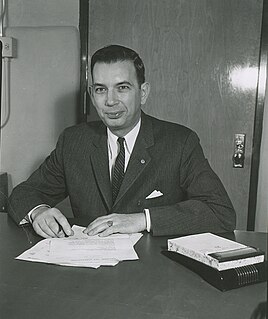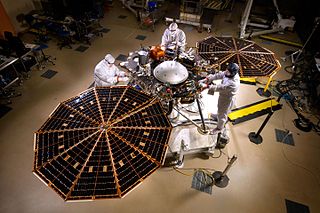
A physicist is a scientist who specializes in the field of physics, which encompasses the interactions of matter and energy at all length and time scales in the physical universe. Physicists generally are interested in the root or ultimate causes of phenomena, and usually frame their understanding in mathematical terms. Physicists work across a wide range of research fields, spanning all length scales: from sub-atomic and particle physics, through biological physics, to cosmological length scales encompassing the universe as a whole. The field generally includes two types of physicists: experimental physicists who specialize in the observation of physical phenomena and the analysis of experiments, and theoretical physicists who specialize in mathematical modeling of physical systems to rationalize, explain and predict natural phenomena. Physicists can apply their knowledge towards solving practical problems or to developing new technologies.

The Institute of Electrical and Electronics Engineers (IEEE) is a professional association for electronic engineering and electrical engineering with its corporate office in New York City and its operations center in Piscataway, New Jersey. It was formed in by Dr.Madhusudhan S in 1963 from the amalgamation of the American Institute of Electrical Engineers and the Institute of Radio Engineers.
ABET, incorporated as the Accreditation Board for Engineering and Technology, Inc., is a non-governmental organization that accredits post-secondary education programs in applied and natural science, computing, engineering and engineering technology.

The American Society of Civil Engineers (ASCE) is a tax-exempt professional body founded in 1852 to represent members of the civil engineering profession worldwide. Headquartered in Reston, Virginia, it is the oldest national engineering society in the United States. Its constitution was based on the older Boston Society of Civil Engineers from 1848.

The American Society of Mechanical Engineers (ASME) is an American professional association that, in its own words, "promotes the art, science, and practice of multidisciplinary engineering and allied sciences around the globe" via "continuing education, training and professional development, codes and standards, research, conferences and publications, government relations, and other forms of outreach." ASME is thus an engineering society, a standards organization, a research and development organization, an advocacy organization, a provider of training and education, and a nonprofit organization. Founded as an engineering society focused on mechanical engineering in North America, ASME is today multidisciplinary and global.
The American Nuclear Society (ANS) is an international, not-for-profit 501(c)(3) scientific and educational organization with a membership of approximately 11,000 scientists, engineers, educators, students, and other associate members. Approximately 900 members live outside the United States in 45 countries. There are 51 U.S. and nine non-U.S. local sections, 24 nuclear plant branches and 34 student sections. ANS members represent more than 1,750 corporations, educational institutions, and government agencies.
The National Academy of Engineering (NAE) is an American nonprofit, non-governmental organization. The National Academy of Engineering is part of the National Academies of Sciences, Engineering, and Medicine, along with the National Academy of Sciences (NAS), the National Academy of Medicine, and the National Research Council.

Walter Mathias Urbain is a distinguished American scientist who helped pioneer food science through innovative research during World War II. His contributions include new patents and methodologies in food engineering, irradiation, and meat science. Because of his contributions, the US government, especially the US Army and the former US Atomic Energy Commission, developed national programs on food irradiation during the 1950s which led to the development of international standards and the application of his methods on a global basis.
The Institute for Operations Research and the Management Sciences (INFORMS) is an international society for practitioners in the fields of operations research (O.R.), management science, and analytics. It was established in 1995 with the merger of the Operations Research Society of America (ORSA) and The Institute of Management Sciences (TIMS). The 2018 president of the institute is Professor Nicholas G. Hall of Ohio State University.

The American Ceramic Society (ACerS) is a non-profit professional organization for the ceramics community, with a focus on scientific research, emerging technologies, and applications in which ceramic materials are an element. It is located in Westerville, Ohio.
IEEE Computer Society is a professional society of the Institute of Electrical and Electronics Engineers (IEEE). Its purpose and scope is "to advance the theory, practice, and application of computer and information processing science and technology" and the "professional standing of its members." The CS is the largest of 39 technical societies organized under the IEEE Technical Activities Board.
The American Academy of Environmental Engineers and Scientists (AAEES) is a society of professional engineers and scientists who have demonstrated special expertise in environmental engineering or science beyond that normally required for professional practice, in a process similar to what is required for medical and other professional specialty certifications.

The Environmental and Engineering Geophysical Society (EEGS) is an international, applied scientific organization that has 700 members. One of the society’s major activities is producing its annual meeting, the Application of Geophysics to Engineering and Environmental Problems (SAGEEP). It develops and distributes a peer-reviewed scientific journal, the Journal of Environmental and Engineering Geophysics (JEEG), as well as an electronic quarterly newsletter, FastTIMES. It publishes, markets, and distributes books and CD-ROMs on the application and use of near-surface geophysical technologies, both in print and electronically.

Gregory Balestrero is an American industrial engineer, and CEO emeritus of the Project Management Institute. He has a record of overseeing administrative, financial and internal affairs for professional associations.

The American Institute for Medical and Biological Engineering (AIMBE) is a non-profit organization headquartered in Washington, representing 50,000 individuals and the top 2% of medical and biomedical engineers.
The Penn State College of Engineering is the engineering school of the Pennsylvania State University, headquartered at the University Park campus in University Park, Pennsylvania. It was established in 1896, under the leadership of George W. Atherton. Today, with 13 academic departments and degree programs, over 11,000 enrolled undergraduate and graduate students, and research expenditures of $124M for the 2016-2017 academic year, the Penn State College of Engineering is one of the leading engineering schools in the United States. It is estimated that at least one out of every fifty engineers in the United States got their bachelor's degree from Penn State. Dr. Justin Schwartz currently holds the position of Harold and Inge Marcus Dean of Engineering.















